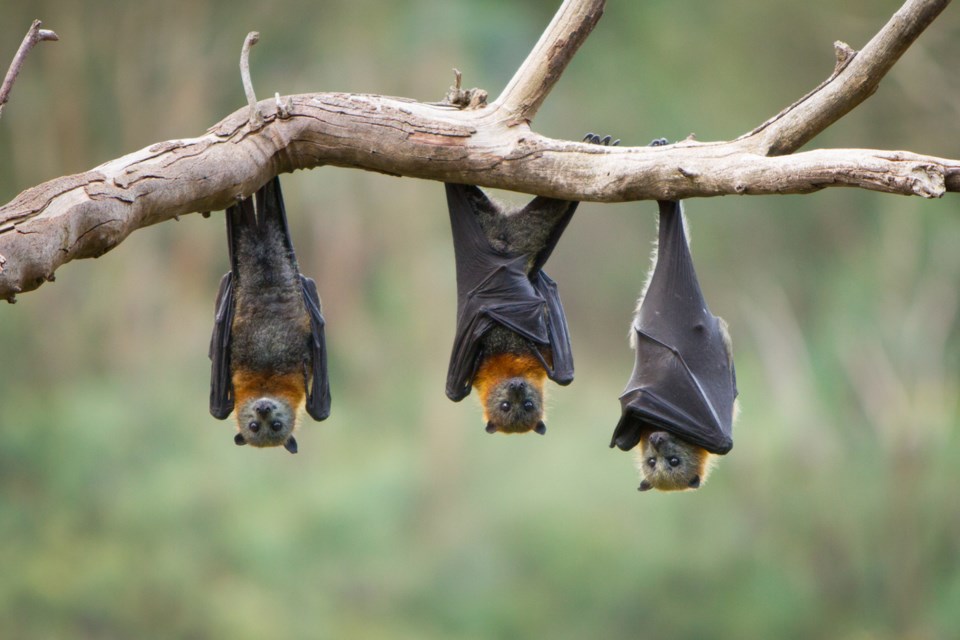Is being cooped up starting to drive you batty?
The BC Community Bat Program is looking for volunteers to help with its annual bat count, noting it's an easy, fun and safe activity for the whole family.
"The counts are a wonderful way for people to get outside, respect social distancing guidelines, and be involved in collecting important scientific information" biologist Danielle Dagenais, regional co-ordinator for the Greater Vancouver-Squamish region of the BC Community Bat Program, said in a release.
The counting season runs from June 1 to Aug. 5. Those participating are asked to wait outside of a known roost site — the program is aware of 40 colonies in buildings and 50 bat boxes in the Greater Vancouver Area — and count them as they fly out for the night. The program attempts to complete four counts at each site, including two in June, during the season.
Anyone who knows where bats are roosting is asked to email [email protected].
Last year, the count collected data at 337 sites in the province.
The data helps biologists "understand bat distribution and normal variation in sizes."
The program is also striving to provide accurate information about bats, noting that it's an increasingly difficult challenge during the COVID-19 pandemic. Bats in B.C. do not have the SARS-CoV-2 virus and cannot spread it. The release also stresses that bats are essential to the province's ecology, eating thousands of insects a night, with a colony of 100 bats able to eat 19 kilograms of insects per summer.
Roughly half of B.C.'s 15 species are at-risk with the little brown myotis reaching endangered status in Canada. A looming threat is white-nose syndrome, a fungal disease that has not yet reached B.C., but is creeping up from Washington state.
"We know relatively little about bats in B.C., including basic information on population numbers," Dagenais said. "This information is more valuable than ever, particularly if it is collected annually. If people want to get involved but don't have a roost site on their property, we will try to match them with a roost site nearby."
For more information, visit www.bcbats.ca.



